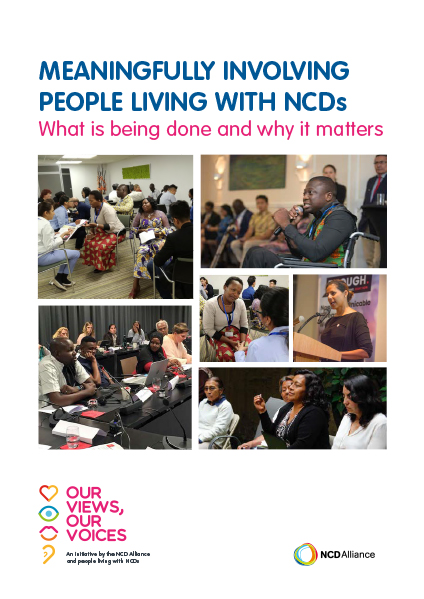
Meaningfully Involving People Living with NCDs
This review lays out some definitions of key concepts and explores what meaningful involvement of people living with NCDs currently looks like within Civil Society, Government, and Health Care Delivery.
Meaningful involvement of people living with NCDs is a critical element of an effective NCD response. People living with NCDs can contribute to many different facets of the NCD response, from awareness raising, to research, advocacy, policymaking, programme planning and implementation, accountability and more. They can also act as role models, breaking barriers to inclusion.
Promoting meaningful involvement requires recognition of its importance and the creation of enabling environments, including dedicated spaces for involvement.

This review lays out some definitions of key concepts and explores what meaningful involvement of people living with NCDs currently looks like within Civil Society, Government, and Health Care Delivery.
Meaningful involvement of people living with NCDs is possible when professionals, organisations, or institutions recognise the value of the lived experience. Leveraging this value comes through accessing the knowledge, skills, and insights of people living with NCDs.
Meaningful involvement avoids tokenism by building a reciprocal relationship with people, ensuring that they also benefit from the experience of being engaged and becoming role models to strengthen meaningful involvement. It is not prescriptive and can take place in different ways and at different levels, from participation to collaboration and co-production, and is applicable across a wide range of different sectors and activities.
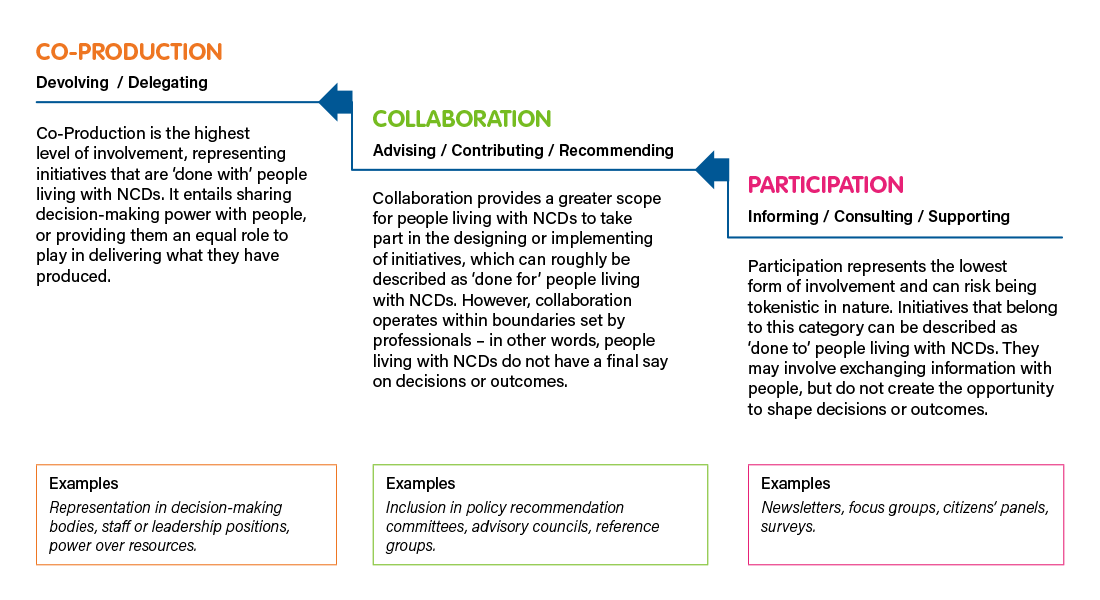
The steps towards making meaningful involvement happen are simple and similar across sectors and levels of involvement. Although it may seem daunting to set up a first activity, there is a vast body of knowledge and experience to draw from.
Below are five key steps that can be followed and adapted by any organisation seeking to set up meaningful involvement initiatives for the first time.

Before planning the first activity, it is important for the organisation to make a formal or informal commitment to meaningfully involve people living with NCDs. An assessment of the organisation’s capacity for meaningful involvement at different levels should be undertaken, and any evident barriers identified.
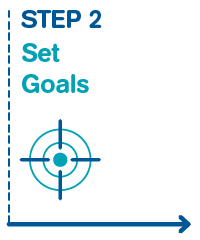
Decide what needs to be accomplished through the meaningful involvement of people living with NCDs. For example, organisations may wish to step up advocacy campaigns on a particular topic, or improve their services to users.
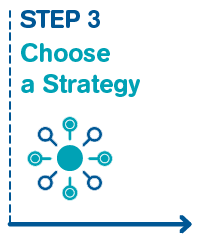
Determine which specific mechanism would be most appropriate in achieving the activity’s objectives with the resources available. This requires insight into the interests and skills of those the organisation wishes to engage.
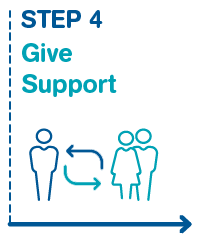
Once the project is in full swing, it is important to provide continuous support to those wishing to get involved. The extent of support necessary will differ based on the level of engagement taking place, and may range from providing simple FAQ sheets to in-depth training.
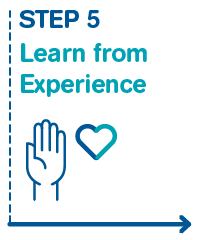
After the activity has taken place (or after a certain time interval, in the case of ongoing activities), evaluation is key to ensuring that objectives are being met, and to discerning any weaknesses in the approach that can be improved in future. Don’t forget to recognise and celebrate successes!
Start small, build buy-in, show results
The concept of meaningful involvement is endlessly adaptable, and can generate value at different levels, ranging from one-off surveys or focus group discussions to executive board appointments and collaborative partnerships.
Create mutual development pathways
People living with NCDs will come from a variety of backgrounds and professions, and will have a variety of existing skills. Always consider what kind of support people will need to be able to fulfil their role. There are many examples of involvement that do not require people living with NCDs to have specialised skills or knowledge to participate. However, building long-term relationships and providing training and resources to develop new skills will unlock the potential for substantial collaboration and co-production initiatives.
Create a culture of involvement
As organisations increase their activities for involving people living with NCDs and the benefits are realised, the recognition of the value of the lived experience and planning for inclusivity becomes part of the organisational culture. Staff and organisational representatives, who may be living with NCDs themselves, may become more open about their lived experience and become role models for meaningful involvement.